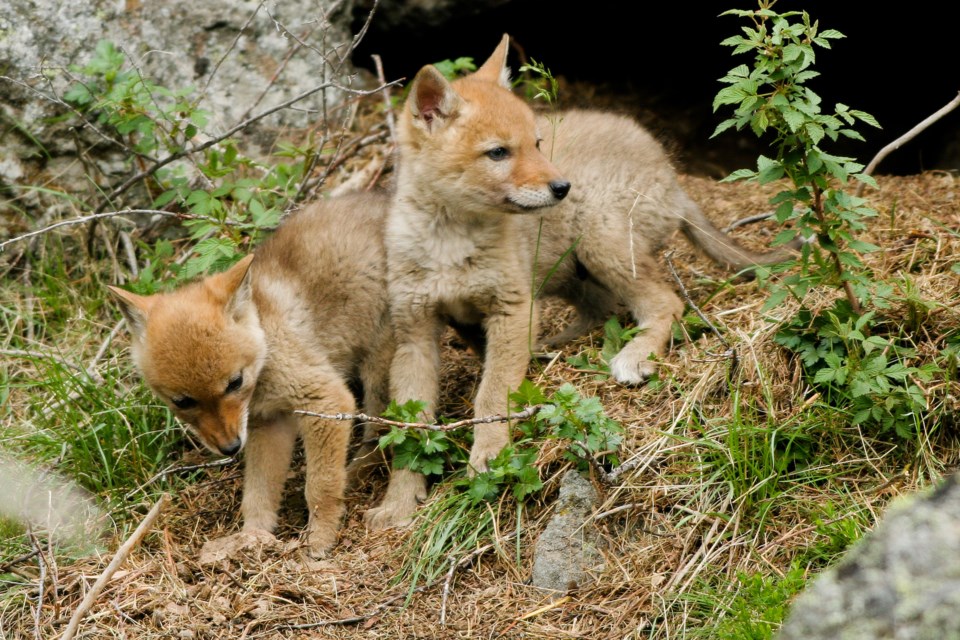A spate of coyote attacks on people in September unnerved many, but city officials say the situation is now under control and moves are being made to establish a more pro-active strategy for coyote management in 2023.
Burlington council started a crisis management team to deal with the problem and four wild coyotes from the aggressive pack associated with the attacks were trapped and killed.
In total the operation cost $22,850 according to a report prepared this fall, but an additional $500,000 has been proposed for the 2023 budget for a two-year Coyote Action and Awareness pilot program.
There were seven attacks on humans reported in September when the aggressive pack was active, but Director of Building and Bylaw Nick Anastasopoulos said no further coyote attacks have been reported since that time and the crisis management team has been disbanded.
Most of the attacks were within a radius of approximately 1 km of the intersection at New Street and Guelph Line.
"They were believed to be part of the same pack," Anastasopoulos said. "We believe we have eliminated the threat to public safety from this family of coyotes responsible for the attacks."
He added: "City staff continue to monitor coyotes and wildlife in Burlington. They gather information and look for food sources that could attract coyotes and other wildlife."
Coyotes are now emerging from one of their more active seasons, October, when the pups are leaving the den. They are also more active during the March mating season.
While coyotes have been in the area for decades, sightings have become more frequent in Burlington, with 285 reported between January and mid-September 2022, according to a recent report. The city's green spaces and forested areas are an ideal habitat for them.
The public has been advised not to feed coyotes and not to leave food accessible to them as this is believed to contribute to increased attacks.
As part of the strategy to manage the presence of coyotes, the city discussed fines related to leaving food accessible back in September.
"Increasing these fine amounts and how Animal Control and Bylaw Officers can act upon them are part of the city’s coyote management recommendations and strategic actions to stop feeding of wildlife, including coyotes," Anastasopoulos said. "Feeding coyotes is the main cause of coyote aggression that led to the unprovoked attacks on people in southeast and south-central Burlington."
The coyote den was found to be located on private property and the owners were contacted and ordered to clean up the area and remove debris the pack was using for shelter.
Coyotes are not completely unwelcome, however. The city report on coyote management notes: "Coyotes play an important ecological role in maintaining diversity of species and the health and integrity of a variety of ecosystems. Coyotes can have a top-down effect on ecosystems by regulating the numbers of other wild animals, such as foxes, raccoons, skunks, and feral cats through competitive exclusion and direct killing. Coyote response plans hope to achieve a balance between the importance of human safety and the role coyotes play in our local ecosystems."
Starting in 2023, the proposed Coyote Action and Awareness pilot program will be moving from a reactive strategy to coyote sightings to a proactive approach. A proposed budget of $576,900 will cover the retention of a Certified Wildlife Professional, salaries, vehicle and operating costs for two years as well as a comprehensive communications campaign.
Some of the proposals are in direct response to a highly critical report the Burlington-Oakville Coyote Management association, a volunteer group, released in February of this year. Public education programs in schools are proposed, along with direct neighbourhood training in affected areas.
Members of the public are encouraged to report any sightings of sick, injured or aggressive coyotes by calling 905-335-3030; If the coyote is an immediate threat to public safety, they should call 911.
Other safety tips include:
- If you see a coyote, keep your distance and the animal will most likely avoid you
- If you come across an aggressive coyote:
- Stop and pick up small children and pets
- Use hazing techniques — shout loudly and wave your arms high in the air
- Back away slowly while remaining calm
- Never run or turn your back on a coyote



